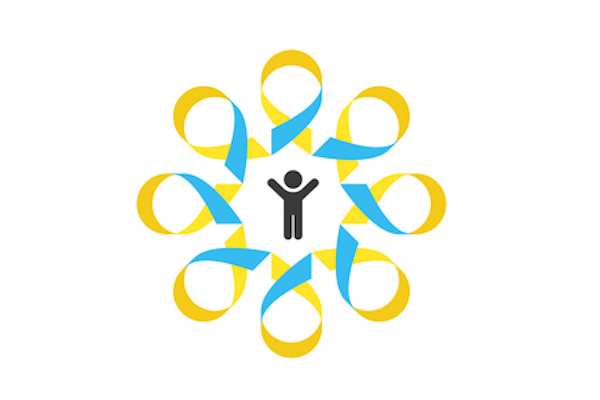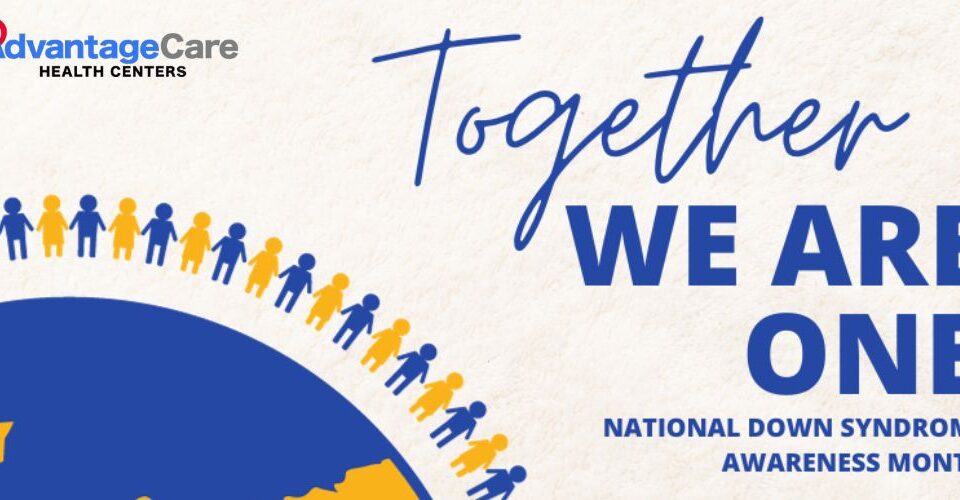
Do I Have Anxiety Disorder or Am I Just Worried? Learn How to Tell
March 19, 2021
Advocating Acceptance During Autism Awareness Month
April 12, 2021
Did you know that one in every 700 babies in the United States is born with Down Syndrome? It is the most commonly occurring (yet often misunderstood) chromosomal condition that can occur in people of all walks of life. Whether or not it has touched your life, find out the facts about Down Syndrome.
What is Down Syndrome?
Down Syndrome is a genetic condition in which a baby is born with an extra chromosome.
Chromosomes determine how a fetus forms during pregnancy and how a baby’s body functions while it grows in the womb and after birth.
Babies with Down Syndrome are born with an extra copy of chromosome 21. This 47th chromosome changes the brain and body’s development, often causing both mental and physical challenges.

The Facts About Down Syndrome
1) Risk Factors
Down Syndrome is often associated with the age of the mother. The highest frequency of occurrence is children born to mothers over age 35.
However, this syndrome can also occur in the most common age range for births, mothers under 35. In fact, the mothers of more than 80 percent of individuals who currently have Down Syndrome were younger than 35 when their baby was born.
2) Health Risks
Down Syndrome increases the risk of developing certain medical conditions, including:
- Congenital heart defects
- Respiratory and hearing problems
- Alzheimer’s disease
- Childhood leukemia
- Thyroid conditions
Most of the medical issues associated with Down Syndrome are treatable, allowing those who have this condition to lead a healthy, fulfilling life. The life expectancy for people with Down Syndrome has significantly increased in recent years. Today, it is approximately 60 years of age, up from just 25 years of age in 1983.
3) Common Traits
Among the facts about Down Syndrome, every parent needs to know that each case is unique. However, those with this condition often share certain common traits, such as:
- Small stature
- Low muscle tone
- An upwards slant to the eyes
- A single deep crease in the center of the palm
4) Cognitive Delays and IQ
All people with Down Syndrome experience cognitive delays that can range from mild to moderate. They usually have a mildly-to-moderately low IQ and tend to speak at a later age than other children.
5) Capabilities
With a positive support network, people who have Down Syndrome can lead fulfilling, productive lives. A stimulating home environment, educational programs, quality health care resources and social support can all contribute to the successful management of Down Syndrome’s challenges.

Contact Advantage Care to Learn More
Down Syndrome is a life-long condition that is best to address early in life. Early intervention services like speech, occupational and physical therapy can help improve physical and intellectual capabilities.
Advantage Care Health Centers offers comprehensive outpatient clinical services and evaluations to all community members with developmental disabilities across their lifespan.
Request an appointment today. Our clinicians can answer any questions you may have about the facts of Down Syndrome and develop an individualized treatment plan that will help your loved one thrive.





